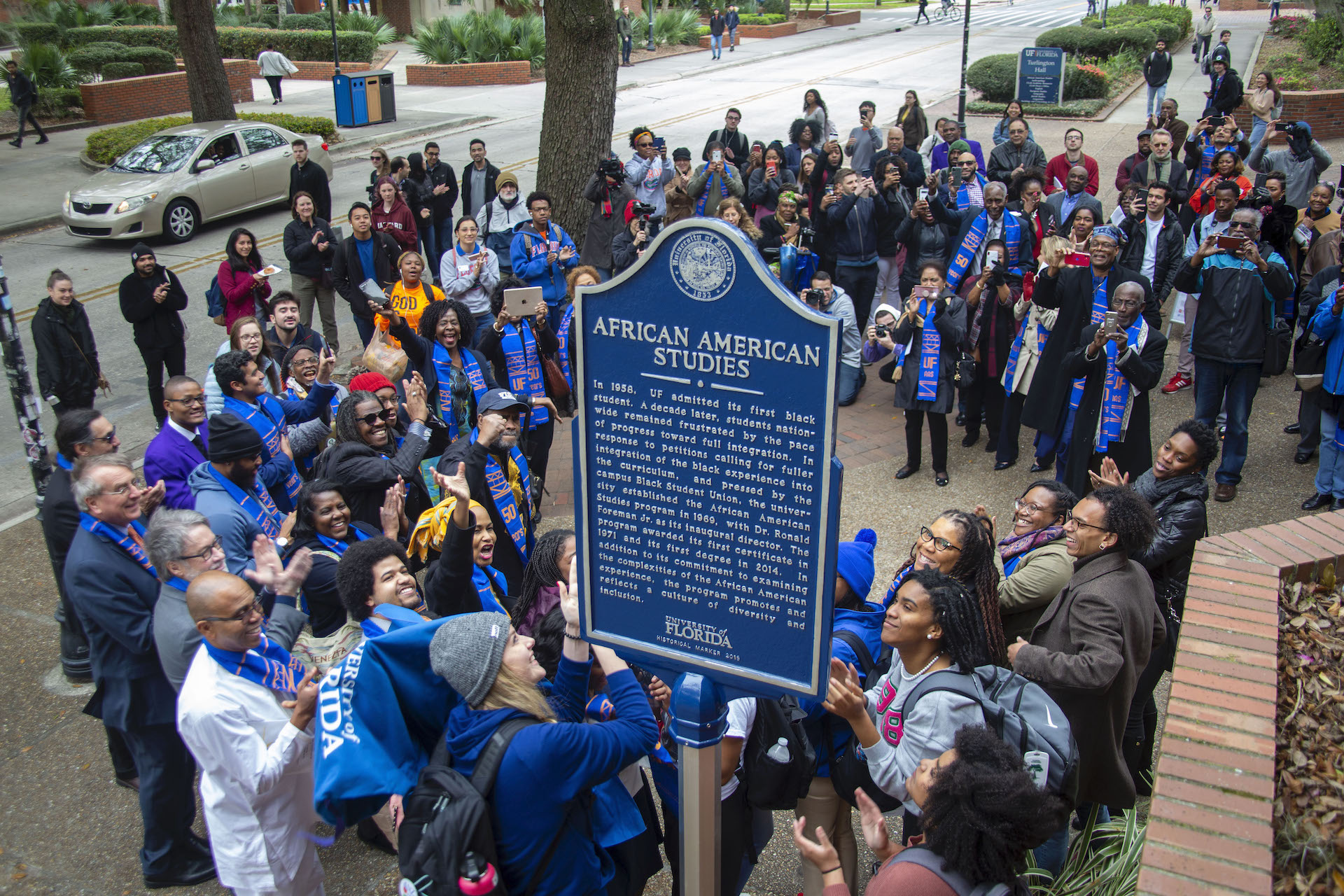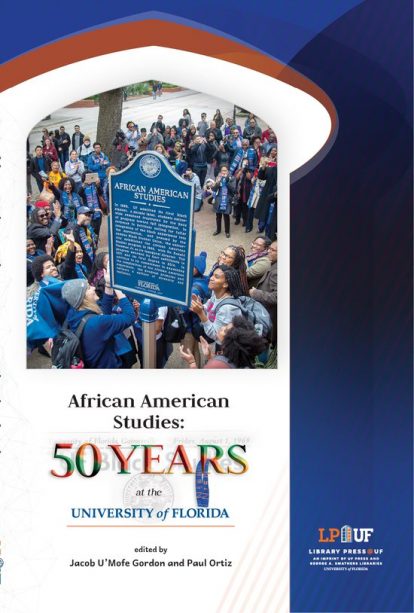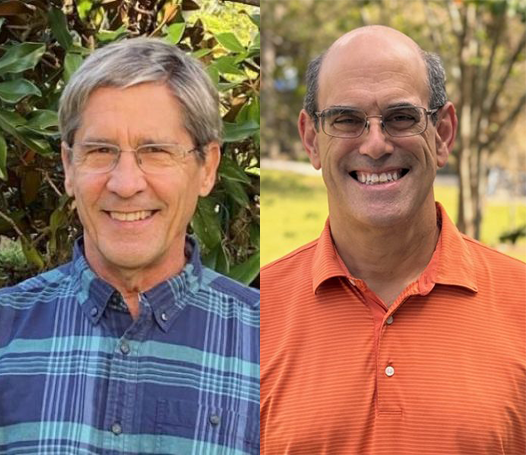
The African Americans Studies historical marker is unveiled at the program's 50th anniversary celebration in 2020 (Image courtesy of African American Studies).
A New Book Shows What African American Studies Made Possible at UF
'African American Studies: 50 Years at the University of Florida' reflects on the program and offers lessons for all
Over the course of five decades, the African American Studies Program at the University of Florida has been a beacon of scholarship, research and community for students. But the lessons drawn from its history, a new book contends, extend well beyond campus.
Through the words of alumni, faculty and friends, African American Studies: 50 Years at the University of Florida (LibraryPress@UF) reflects on the creation of an essential institution — and the work necessary to sustain it. In a virtual book launch event in January, editors JACOB U’MOFE GORDON and PAUL ORTIZ said the resulting portrait offers insight into the origins and trajectory of African American Studies in the United States.

“The book focuses on the struggles for inclusion in all aspects of University of Florida and the Gainesville community at large,” said Gordon, a member of the program’s advisory board and a Professor Emeritus of African and African-American Studies at the University of Kansas. “Without that struggle we wouldn’t be here. We’d have no book to edit.”
The retrospective covers major milestones in the program’s history, such as the establishment of a degree program in 2013 under former director SHARON WRIGHT AUSTIN. But the broad scope of its nine chapters also includes the student activism that laid the groundwork for the program’s inception, the groundbreaking research produced by its scholars, and the community engagement that has been a cornerstone of its existence from the beginning.
African American Studies, Ortiz noted, is a “participatory discipline” that relies on “passion, energy and commitment to building a better, more equal world.” UF’s program and those like it serve as a conduit to off-campus communities invested in the same goals.
“There’s just as much knowledge and wisdom in those communities off-campus as there is on campus,” said Ortiz, who is also director of Samuel Proctor Oral History Program and a professor of history at UF.
In comments at the virtual book launch, University of Florida Provost JOE GLOVER praised the “remarkable historical study” and noted that the book also serves as a remembrance of PATRICIA HILLIARD-NUNN, the late senior lecturer of African American Studies who was long a source of vital mentorship and research. Hilliard-Nunn, who died Aug. 5, 2020, contributes the book’s first chapter (completed by Gordon after her passing).
Director of African American Studies DAVID A. CANTON, in his remarks at the event, stressed that African American Studies is not just for Black students — it is relevant to anyone interested in approaching the world with critical thinking.
“What can you do with a Black studies major? The same thing you can do with any humanities majors,” Canton said. Transferrable skills like communication and collaboration imparted by the program have launched alumni into careers spanning law, medicine, academia and more.
To introduce the importance of African American Studies to a new generation, the editors ensured that the book is “classroom-ready.” Each chapter features a set of study questions to make the content accessible and engaging to high school students and community educators. An understanding of American history, Gordon said, relies on the very concepts the book covers.
“African American Studies,” he said, “is essential to the American story.”
African American Studies: 50 Years at the University of Florida is available now in print and digital formats.


